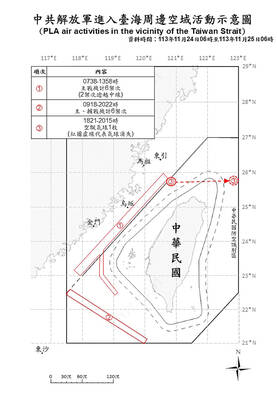A civic group on Tuesday called on the Ministry of Labor to abolish the monthly “employment stabilization” fee of NT$2,000 (US$61.47) collected from families who hire migrant at-home caregivers after a care recipient scores below a certain level on the Barthel Index.
The International Association of Family and Employers with Disabilities held a news conference in Taipei to raise awareness about the issue, which it characterized as being equivalent to levying a “handicap tax.”
The monthly fee is intended to fund “employment stabilization” measures when a family hires a migrant caregiver due to the potential negative impact such a move could have on the job opportunities of Taiwanese caregivers.

Photo courtesy of the Ministry of Labor
However, in reality, few, if any, Taiwanese work as live-in caregivers, association chief executive officer Tung Wen-hsun (童文薰) said.
Association president Heidi Chang (張姮燕) said that the employment stabilization fund has often been misappropriated to pay cash rewards to people who report absconded migrant workers to the authorities and to purchase flight tickets to deport such workers after they are found and detained.
In a statement, the association demanded that families with seriously ill members who score lower than a certain level on the Barthel Index, used to determine whether a person qualifies to be cared for by a migrant caregiver, should be exempted from paying the employment stabilization fee.
The ministry in October last year relaxed eligibility rules on recruiting live-in migrant caregivers and waived the requirement of a Barthel Index score for people who have been using long-term care services for at least six consecutive months, those diagnosed with early-stage dementia and people with certain disabilities, such as individuals who experience severe difficulty breathing or difficulty swallowing.
Chinese Nationalist Party (KMT) Legislator Wang Hung-wei (王鴻薇), who attended the news conference, expressed support for the association’s demands and accused former minister of labor Hsu Ming-chun (許銘春) of misusing the fund.
Democratic Progressive Party (DPP) Legislator Lin Shu-fen (林淑芬) has accused Hsu of spending taxpayers’ money to hold a “concert” in Kaohsiung to mark the 20th anniversary of the promulgation of the Gender Equality in Employment Act (性別平等工作法), at which she sang for 30 minutes.
Meanwhile, Taiwan People’s Party caucus whip Huang Kuo-chang (黃國昌) said that Hsu spent NT$3.56 million from the employment stabilization fund on the event.
The association called on lawmakers across party lines to launch a probe into how the fund has been used.
Meanwhile, Minister of Labor Hung Sun-han (洪申翰) on Tuesday visited the Work Development Agency’s northern branch in New Taipei City.
Hung became the minister on Monday after his predecessor, Ho Pei-shan (何佩珊), resigned over her handling of the suicide of a 39-year-old civil servant surnamed Wu (吳) at the regional office.
Hsieh Yi-jung (謝宜容), who headed the branch at the time of Wu’s death, was dismissed on Wednesday last week amid widespread speculation that Wu had been driven to suicide by workplace bullying.
After visiting the office, Hung said the work culture that existed under the former leadership had led to “low morale” and workers feeling unable to voice their concerns.
He vowed to improve the working environment at the ministry to “regain social trust and protect workers’ rights.”

Taiwan’s passport ranked 34th in the world, with access to 141 visa-free destinations, according to the latest update to the Henley Passport Index released today. The index put together by Henley & Partners ranks 199 passports globally based on the number of destinations holders can access without a visa out of 227, and is updated monthly. The 141 visa-free destinations for Taiwanese passport holders are a slight decrease from last year, when holders had access to 145 destinations. Botswana and Columbia are among the countries that have recently ended visa-free status for Taiwanese after “bowing to pressure from the Chinese government,” the Ministry

Theaters and institutions in Taiwan have received 28 threatening e-mails, including bomb threats, since a documentary critical of China began being screened across the nation last month, the National Security Bureau said yesterday. The actions are part of China’s attempts to undermine Taiwan’s sovereignty, it said. State Organs (國有器官) documents allegations that Chinese government officials engage in organ harvesting and other illegal activities. From last month to Friday last week, 28 incidents have been reported of theaters or institutions receiving threats, including bomb and shooting threats, if they did not stop showing the documentary, the bureau said. Although the threats were not carried out,

HEALTHCARE: Following a 2022 Constitutional Court ruling, Taiwanese traveling overseas for six months would no longer be able to suspend their insurance Measures allowing people to suspend National Health Insurance (NHI) services if they plan to leave the country for six months would be abolished starting Dec. 23, NHIA Director-General Shih Chung-liang (石崇良) said yesterday. The decision followed the Constitutional Court’s ruling in 2022 that the regulation was unconstitutional and that it would invalidate the regulation automatically unless the NHIA amended it to conform with the Constitution. The agency would amend the regulations to remove the articles and sections that allow the suspension of NHI services, and also introduce provisional clauses for those who suspended their NHI services before Dec. 23, Shih said. According to

‘GRAY ZONE’ TACTICS: China continues to build up its military capacity while regularly deploying jets and warships around Taiwan, with the latest balloon spotted on Sunday The US is drawing up contingency plans for military deployments in Japan and the Philippines in case of a Taiwan emergency, Japan’s Kyodo news agency reported. They would be incorporated in a first joint operation plan to be formulated in December, Kyodo reported late on Sunday, citing sources familiar with Japan-US relations. A US Marine Corps regiment that possesses High Mobility Artillery Rocket Systems — a light multiple rocket launcher — would be deployed along the Nansei Island chain stretching from Kyushu to Yonaguni near Taiwan, Kyodo said. According to US military guidelines for dispatching marines in small formations to several locations,